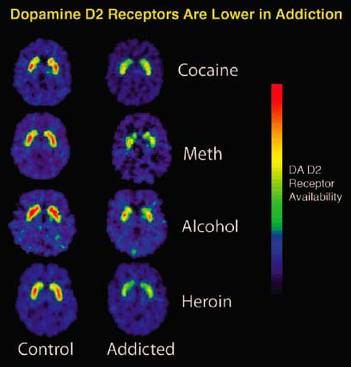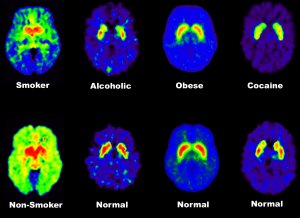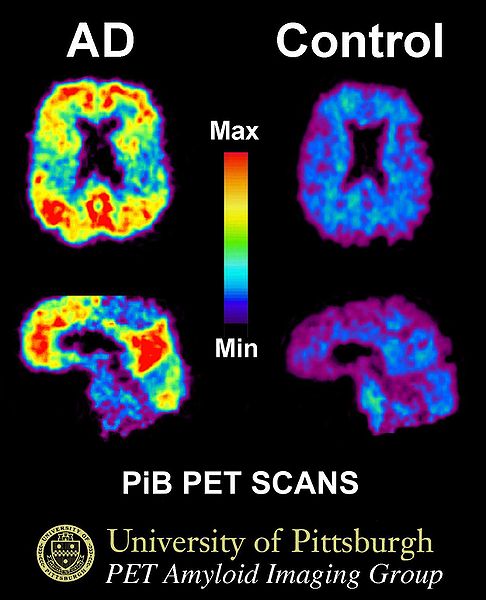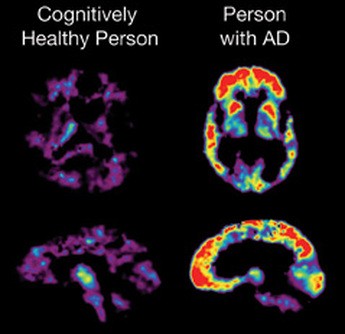SUGAR ADDICTION AND
THE HUMAN BRAIN
“Sugar Has a Powerful Influence Over Our Behavior For some people there will be anatomical changes in the brain when exposed to these sorts of foods. In many cases, this can end up in full-blown addiction. I can support this idea with some personal experiences. I am a recovering drug addict who has been to 6 rehabs. I was also a smoker for many years and it was a long battle for me to quit. You could say that I know addiction like the back of my hand. I’m here to tell you that addiction to sugar and junk foods is exactly the same as addiction to abusive drugs like nicotine, amphetamine and cannabis. There is no difference, except the substance of abuse is different and the consequences of relapse aren’t as severe. There is only one thing that consistently works for true addicts to overcome their addiction and that is complete abstinence. This is what worked for me giving up drugs and this is the only way I have ever been able to cut back on my consumption of sugar and other junk foods. Since learning about this, I’ve spoken to several other recovering addicts and all of them say that they experience cravings for junk foods in the exact same way as they used to crave drugs and alcohol. I personally haven’t touched sugar or gluten in about 5 months now. I’ve lost almost 30 pounds and I never crave these foods anymore.” Kris Gunnars from How Sugar Hijacks Your Brain And Makes You Addicted. Kris is now a personal trainer and medical student, who authors the website, Authority Nutrition.
“Research indicates that chronic drug use induces changes in the structure and function of the system’s neurons that last for weeks, months or years after the last fix. These adaptations, perversely, dampen the pleasurable effects of a chronically abused substance yet also increase the cravings that trap the addict in a destructive spiral of escalating use and increased fallout at work and at home.” Drs. Eric J. Nestler and Robert C. Malenka from the March 2004 issue of Scientific American (The Addicted Brain).
“How many drinkers do I have? And how many drinks do they drink? If you lost one of those heavy users, if somebody just decided to stop drinking Coke, how many drinkers would you have to get, at low velocity, to make up for that heavy user? The answer is a lot. It’s more efficient to get my existing users to drink more.” Jeffrey Dunn, former Coca Cola executive speaking to Tom McKay of NewsMic (What Happens to Your Brain on Sugar, Explained by Science).
“If You Eat Sugar, There’s a Good Chance You’re Addicted to It” The header from a March 10, 2012 article (The Most Unhappy of Pleasures: This Is Your Brain on Sugar) by Dr. Joseph Mercola
“We’re all looking for something to ease the pain.” Bryan Adams from 1984’s Somebody (Reckless)
The concept of “food addiction” materialized in the diet industry on the basis of subjective reports, clinical accounts and case studies described in self-help books. The rise in obesity, coupled with the emergence of scientific findings of parallels between drugs of abuse and palatable foods has given credibility to this idea. The reviewed evidence supports the theory that, in some circumstances, intermittent access to sugar
[bingeing] can lead to behavior and neurochemical changes that resemble the effects of a substance abuse.“Unfortunately, not only does ΔFosB increase the response of the reward cascade, it heightens (at least at first) the sensitivity of Dopamine itself. This means that not only do you have more of this “feel-good” neurotransmitter in your system, but it actually works more effectively. But it does not stop there. According to New York’s Mount Sinai, Icahn School of Medicine this, “can induce long-lasting changes in gene expression“. In case you are not aware of what this quote is implying; take a few moments to read up on EPIGENETICS (and HERE). Epigenetics trumps genetics and simply means that you are not as controlled by your genetic makeup as you have always been taught. Certain behaviors, diet, exercise, STRESS, etc, etc, etc, have the ability to turn genes off or on, depending on the situation. Oh, and because ΔFosB is the most stable of the Fos family, it tends to stay in the Nucleus Accumbens for a long time — a very long time.
The problem is that sugar not only changes the brain’s function (see the PET Scans above), it changes the brain’s structure. Probably the most striking example of sugar-related brain changes is seen in scans of people with ALZHEIMER’S DISEASE. Just the other day I had a patient from Texas telling me that as caretaker of their father who had Alzheimer’s, he constantly wanted sugar, and when he got it, became so unruly they could barely control him. Do you remember near the top of this post I stated that, “Sugar Addiction is probably harder on the brain than any other organ in the body“? As crazy as it sounds, ALZHEIMER’S DISEASE is so heavily linked to sugar consumption that it is frequently referred to as Type III Diabetes or Psychodiabetes. Take a look at the PET Scans below as they connect the dots between brain function and the Amyloid Plaques which are so characteristic of Alzheimer’s, and thought to be intimately related to sugar consumption.
HOW TO KICK THE SUGAR HABIT
It’s not easy, but if you cannot defeat sugar / carbs, you will not only live a miserable life, you will likely die a miserable (difficult) death. This is because Blood Sugar Regulation Issues are being tied to almost every chronic health problem and disease under the sun (HERE). You owe it to yourself to do whatever it takes to defeat this monster. Don’t wait another day! Create a plan, find one or more accountability partners, and get started today.






